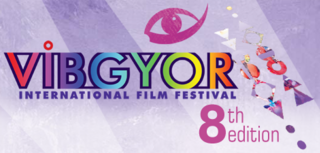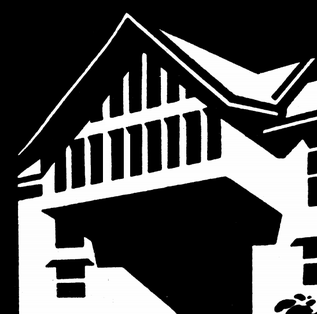
Epcot, stylized in all uppercase as EPCOT, is a theme park at the Walt Disney World resort in Bay Lake, Florida. It is owned and operated by The Walt Disney Company through its Disney Experiences division. The park opened on October 1, 1982, as EPCOT Center, the second of four theme parks built at the resort. Often referred to as a "permanent world's fair", Epcot is dedicated to the celebration of human achievement, particularly technological innovation and international culture and is known for its iconic landmark Spaceship Earth, a geodesic sphere.

International development or global development is a broad concept denoting the idea that societies and countries have differing levels of economic or human development on an international scale. It is the basis for international classifications such as developed country, developing country and least developed country, and for a field of practice and research that in various ways engages with international development processes. There are, however, many schools of thought and conventions regarding which are the exact features constituting the "development" of a country.

World Water Day is an annual United Nations (UN) observance day held on the 22nd of March that highlights the importance of fresh water. The day is used to advocate for the sustainable management of freshwater resources. The theme of each year focuses on topics relevant to clean water, sanitation and hygiene (WASH), which is in line with the targets of Sustainable Development Goal 6. The UN World Water Development Report (WWDR) is released each year around World Water Day.

The World Book Capital (WBC) is an initiative of UNESCO which recognises cities for promoting books and fostering reading for a year starting on April 23, World Book and Copyright Day. Cities designated as UNESCO World Book Capital carry out activities with the aim of encouraging a culture of reading in all ages and sharing UNESCO's values. The nomination does not provide a financial prize.

The Fourth World Conference on Women: Action for Equality, Development and Peace was the name given for a conference convened by the United Nations during 4–15 September 1995 in Beijing, China.

The Human Development Report (HDR) is an annual Human Development Index report published by the Human Development Report Office of the United Nations Development Programme (UNDP).
Dance in Singapore has been an integral part of its culture despite having a relatively short history of creative, artistic and professional dance. The range of dance reflects the cultural diversity of Singapore, from traditional dance forms to contemporary genres.

ViBGYOR Film Festival is an international short and documentary film festival held annually in Thrissur City in Kerala state of India. ViBGYOR Film Festival is organised by ViBGYOR Film collective, a coalition of Chetana Media Institute, Nottam Traveling Film Festival, Navachitra Film Society, Visual Search, Moving Republic, Cense, GAIA, with the support of Thrissur Municipal Corporation, Jilla Panchayath, Federation of Film Societies of India, Kerala Chalachitra Academy, Information & Public Relations, ActionAid India, ICCO-South Asia and other various Film Societies.

The Centre for Development Studies (CDS), Thiruvananthapuram, Kerala, India is a premier Social Science research institute. It is also a higher education institution providing M.A. course in applied economics and PhD course in economics. The institute is internationally reputed for being a centre for advanced learning in economics. Its main objective is to promote research, teaching and training in disciplines relevant to development.
Barefoot College, previously known as the Social Work and Research Centre ("SWRC") is a voluntary organisation working in the fields of education, skill development, health, drinking water, women empowerment and electrification through solar power for the upliftment of rural people, which was founded by Bunker Roy in 1972. It is registered under Friends of Tilonia Inc.

Benin and the United States have had an excellent history of relations in the years since Benin embraced democracy. The U.S. Government continues to assist Benin with the improvement of living standards that are key to the ultimate success of Benin's experiment with democratic government and economic liberalization, and are consistent with U.S. values and national interest in reducing poverty and promoting growth. The bulk of the U.S. effort in support of consolidating democracy in Benin is focused on long-term human resource development through U.S. Agency for International Development (USAID) programs.
Theories on the causes of poverty are the foundation upon which poverty reduction strategies are based.

The Free Culture Forum (FCForum) was an international meeting of relevant organisations and individuals involved in free culture, digital rights and access to knowledge. It took place in Barcelona every annually from 2009 to 2015, jointly with the oXcars, a free culture festival. The oXcars are a non-competitive awards ceremony held at Sala Apolo in Barcelona, Spain, in October each year. They are a public showcase that puts the spotlight on cultural creation and distribution carried out under the paradigms of shared culture. Through presentations and symbolic mentions of works in a series of categories, real legal situations involving free culture are shown using parody.
Rural Reconstruction Nepal (RRN) (Nepali: नेपाल ग्रामीण पुनर्निर्माण संस्था) is a non-government, not for profit, social development organisation in Nepal, initiated in 1989 in the form of a small organisation created by a group of creative graduates of the Institute of Agriculture and Animal Science in Chitwan district with its initial name 'Grass Roots Institute for Training and Services-Nepal (GRITS-Nepal)'. By subscribing to the basic principles of the International Rural Reconstruction Movement, GRITS-Nepal was renamed and officially registered in 1993 as Rural Reconstruction Nepal (RRN). With the passage of time, RRN has been able to expand itself into one of the fast-growing NGOs in the country together with its diverse development programmes covering the vast geographical area and the population.
Finger Lakes Environmental Film Festival (FLEFF) is an annual multi-arts, interdisciplinary, cross media festival in Ithaca, New York, dedicated to showcasing global media projects focusing on issues pertaining to sustainability.

Adrian Parr Zaretsky is an Australian-born philosopher and cultural critic. She specializes in environmental philosophy and activism. In addition, she published on the sustainability movement, climate change politics, activist culture, and creative practice.

The 2030 Agenda for Sustainable Development, adopted by all United Nations members in 2015, created 17 world Sustainable Development Goals (SDGs). They were created with the aim of "peace and prosperity for people and the planet..." – while tackling climate change and working to preserve oceans and forests. The SDGs highlight the connections between the environmental, social and economic aspects of sustainable development. Sustainability is at the center of the SDGs.
2015 was designated the European Year for Development by the European Parliament and the Council of the European Union in Decision No 472/2014/EU.

Global Goals Week is a shared commitment between a coalition of over 160 partners across all industries, which mobilizes annually in September to bring together communities, demand urgency, and supercharge solutions for the Sustainable Development Goals (SDGs). It was founded in 2016 by the United Nations Foundation, Project Everyone, and the United Nations Development Programme (UNDP). It is timed to coincide with the UN General Assembly "High-Level Week" in New York. The week includes events, summits, conferences, forums, workshops, pledges, and other activations in New York, around the world, and online. It usually runs alongside Climate Week NYC, the annual conference of Goalkeepers, Bloomberg Global Business Forum and many other high-level events.












